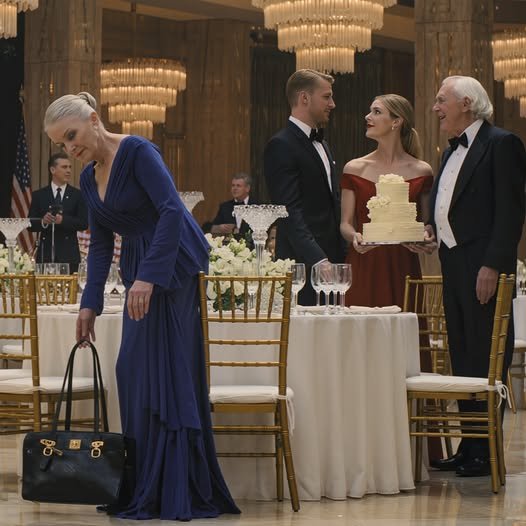The ballroom was dazzling, but the real spectacle was my own humiliation. At my son Ryan’s thirty-fifth birthday, surrounded by his fiancée’s wealthy family and friends, he took the mic and made sure everyone knew I’d contributed nothing. “My mom didn’t even pay for the cake,” he quipped to a roomful of laughter. In that moment, the veil lifted. I saw not my son, but a stranger who viewed my decades of sacrifice as insignificant. My smile as I exited was the mask I’d worn for years, finally cracking. By morning, I was done wearing it.
The journey to that party had been a slow surrender. After his father died, I built Carter Events from scrubbed floors and saved pennies into a respected company, all for Ryan. But when he met Tessa and her powerful father, Victor, my version of success—hands-on, integrity-driven—suddenly seemed small to him. He began to parrot their language of “scaling” and “modernizing,” treating me less like a partner and more like a stubborn employee clinging to an outdated model. The birthday party was merely the stage where he chose to perform his new allegiance.
I spent that sleepless night not in grief, but in grim resolution. I met with my lawyer and dismantled the financial future I’d painstakingly built for Ryan. The substantial “R Fund” was redirected to fund culinary scholarships for single mothers. My company’s leadership was formally passed to my niece, Dana, whose respect for the business matched my own. These weren’t acts of anger, but of profound reclamation. I was taking back the value I had created and placing it where it would be honored, not dismissed.
The shockwaves reshaped Ryan’s world overnight. The expected inheritance was gone. His standing at my company was reduced to that of a simple employee. The Monroe family’s patronage, which hinged on his perceived prospects, evaporated. His engagement unraveled. The frantic calls from him were a mix of fury, confusion, and eventually, a desperate kind of clarity. He was forced to see that the golden path he’d chosen was paved with my unacknowledged labor, and that path was now closed.
Today, we are rebuilding. Ryan, having faced the harsh lesson of his choices, has started his own venture. We speak, we advise, there is love. But it is a love tempered by truth. That night at the party, he tried to diminish me to elevate himself. In response, I didn’t shrink; I simply removed the platform he’d taken for granted. The greatest gift a parent can give a child is not a bank account, but the understanding that every choice carries a weight. I had to let him feel the full weight of his.


